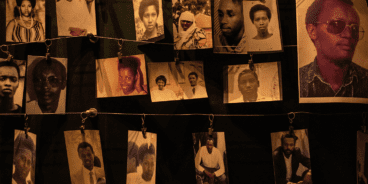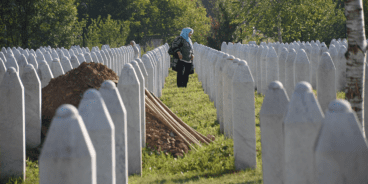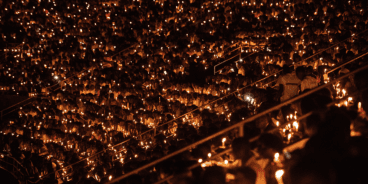
Statement on 40th Anniversary of the Khmer Rouge’s Atrocities in Cambodia
Today, 17 April 2015, marks the fortieth anniversary of the seizure of power by the “Khmer Rouge” movement in Cambodia. After years of civil war and foreign military intervention, the Khmer Rouge’s army entered Phnom Penh on 17 April 1975. Formally known as the Communist Party of Kampuchea, the Khmer Rouge renamed the country Democratic Kampuchea and ruled until January 1979 when neighboring Vietnam invaded following border clashes and growing evidence of atrocities.
Under the Khmer Rouge, people were deprived of their basic human rights. Major cities were forcibly depopulated, personal property was banned, schools and organized religion were abolished, and all social and economic life was involuntarily collectivized.
The Khmer Rouge not only set about the ruthless elimination of “class enemies” and supporters of the former government, but systematically targeted minority religious and ethnic communities for destruction. Sino-Khmer and ethnic Vietnamese were persecuted while almost half the Muslim Cham population died. Disastrous economic policies and murderous political purges posed a threat to all Cambodians. In all, an estimated 1.7 million Cambodians lost their lives during the Khmer Rouge’s rule.
Today Cambodia is still coming to terms with the legacy of Khmer Rouge atrocities. The UN-supported Extraordinary Chamber in the Courts of Cambodia (ECCC) was established in 2006 and has indicted five former Khmer Rouge leaders for Crimes Against Humanity. Three of them, Kaing Guek Eav (alias Duch), Khieu Samphan and Nuon Chea, have been given life sentences. Despite government reluctance, the ECCC recently moved to indict several other former Khmer Rouge leaders.
Cambodia, which experienced its own internationally-brokered peace process during the 1990s, is now an important contributor to UN Peacekeeping Operations and currently has peacekeepers deployed in Central African Republic, Mali and South Sudan, where part of their mandate includes protecting civilians from potential mass atrocities.
In February of this year Cambodia hosted a major conference on mass atrocity prevention and the Responsibility to Protect (R2P) in Phnom Penh. At the conference Prime Minister Hun Sen publicly reaffirmed Cambodia’s commitment to R2P and to advancing accession to the Rome Statute of the International Criminal Court throughout Southeast Asia. He also committed to appointing a national R2P Focal Point in order to better engage with international efforts to build national resilience to mass atrocity crimes. These are positive steps that should be supported.
Four decades after the Khmer Rouge took power and made Cambodia infamous for its “killing fields,” the country is still struggling to come to terms with its history. On this anniversary we applaud the progress that has been made and urge the government to continue to work towards the expansion of human rights and accountability for past injustices.
Related Content


Statement on Genocide Prevention and Awareness Month, 2023
